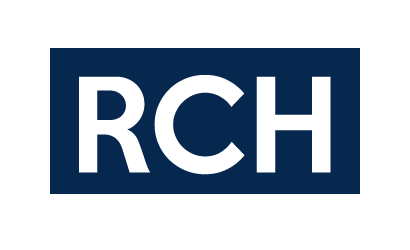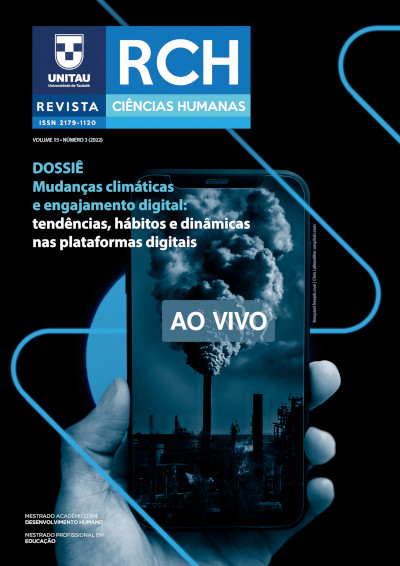DIETA DA SAÚDE PLANETÁRIA E MUDANÇA CLIMÁTICA EM CONFRONTOS ONLINE NO TIKTOK
DOI:
https://doi.org/10.32813/2179-1120.2022.v15.n3.a927Palavras-chave:
Affordances, mudança climática, fake news, microvídeos.Resumo
A questão global da mudança climática tem sido tema recorrente entre as chamadas teorias da conspiração, fake news e deep fakes que circulam nas mídias sociais online. Nesse contexto, o ciberespaço comporta arena discursiva na qual ciência e contra-ciência se entrechocam, gerando panoramas ideologicamente conflitantes e embates identitários. Tais fluxos comunicacionais, que correm com larga participação de não especialistas, impactam afetiva e efetivamente grandes contingentes de pessoas, muitas vezes sob a influência meramente algorítmica das conexões. A partir de abordagem netnográfica, a presente pesquisa analisa um conjunto de 352 microvídeos publicados na plataforma de rede social TikTok, que foram identificados pela hashtag #yes2meat, a qual se consolidou internacionalmente em contraposição a proposições de dietas alimentares para a saúde planetária formuladas por cientistas congregados pela The Lancet Commission, em 2019. O objetivo da investigação foi o de identificar elementos recorrentes na conformação das dinâmicas comunicativas dessa plataforma e que tendem a favorecer o comportamento memético dos conteúdos postados, independentemente do questionamento de sua veracidade. O texto finaliza apontando a relevância essencial das affordances promotoras e incentivadoras da afetividade online, centradas no favorecimento das condições de visibilidade e editabilidade dos conteúdos postados e na associação destes com diferentes atores sociais e outros textos verbo-visuais circulantes, mesmo que não diretamente associados ao tema.
Métricas
Referências
Atkins, R. C. (1972) Dr. Atkins diet revolution. New York: David Mckay Company.
Bash, C. H, Yalamanchili, B., & Fera, J. (2022). #Climatechange on TikTok: a content analysis of videos. Journal of Community Health, 37(4), 163-167. https://doi.org/10.1007/s10900-021-01031-x
Foxcroft, L. (2013). A tirania das dietas: dois mil anos de luta contra o peso. São Paulo: Três Estrelas.
Garcia, D., Galaz, V., & Daume, S. (2019). EatLancet vs yes2meat: the digital blacklash to the planetary health diet. The Lancet, 394(10125), 215-2154. https://doi.org/10.1016/S0140-6736(19)32526-7
Gregolin, M. R. (2007). Análise do discurso e mídia: a (re)produção de identidades. Comunicação, Mídia e Consumo, 4(11), 11-25.
Guinaudeau, B., Votta, F., & Munger, K. (2021). Fifteen seconds of fame: TikTok and the supply side of social video. Recuperado de https://osf.io/c4xq3/.
Hautea, S., Parks, P., Takahashi, B., & Zeng, J. (2021). Showing they care (or don’t): affective publics and ambivalent climate activism on TikTok. Social Media + Society (SM+S), 7(2),1-14. https://doi.org/10.1177/20563051211012344
Hu, F. (2019, outubro, 9). Entrevista concedida a Tara Parker-Pope e Anahad O’Connor para o The New York Times. Autor de estudo sobre benefícios de comer carne omitiu laço com a indústria; tradução: Matheus Moreira. Folha de São Paulo, Saúde, B6.
Ingrid, G. Estudo que aponta carne como segura à saúde é mentiroso, mas ela não é vilã. Viva Bem, Portal UOL. Recuperado de https://www.uol.com.br/vivabem/noticias/redacao/2019/10/24/por-que-estudo-que-aponta-carne-vermelha-como-segura-a-saude-e-mentiroso.htm.
Johnston, B. et al. (2019). Unprocessed red meat and processed meat consumption: dietary guideline recommendations from the Nutritional Recommendation (NutriRECS) Consortium. Annals of International Medicine, 171(10), 756-766.
Junqueira, A.H. (2020). Fake news no campo das dietas alimentares e curativas: dilemas e desafios para a educação midiática. Regit, 13(1), 71-86.
Kantar Ibope Media (2022). Insidevideo: a(re)descoberta. Recuperado de https://www.kantaribopemedia.com/estudos-type/inside-video-2022/
Kozinets, R. (2010). Netnography: doing ethnography research online. London: Sage Publications Ltd.
Kozinets, R. (2019). Netnography: the essential guide to qualitative social media research. London: Sage.
Kozinets, R., & Handelman, J.M. (2004). Adversaries of consumption: consumer movements, activism, Journal of Consumer Research, 31(3), 691-704. https://doi.org/10.1086/425104
Kraemer, F. B., Prado, S. D.; F., F. R., &Carvalho, M. C. V. S.(2014). O discurso sobre a alimentação saudável como estratégia de biopoder. Physis: Revista de Saúde Coletiva, 24(4), 1337-1360.
Mahl, D., Zeng, J., & Schäfer, M. S. (2021). From “Nasa Lies” to “Reptilian Eyes”: mapping communication about 10 conspiracy theories, their communities, and main propagators on Twitter. Social Media + Society (SM+S), 7(2), 1-12. https://doi.org/10.1177/20563051211017482
Nestle, M. (2019). Uma verdade indigesta: como a indústria alimentícia manipula a ciência do que comemos. São Paulo: Elefante.
Papacharissi, Z. (2015a). Affective publics and structures of storytelling: sentiment, events and mediality, Information, Communication & Society, 19(3), 307- 324. https://doi.org/10.1080/1369118X.2015.1109697
Papacharissi, Z. (2015b). Affective Publics: sentiment, technology and politics. Oxford: Oxford University Press.
Papacharissi, Z. (2012). Without you, I’m nothing: Performances of the self on Twitter. International Journal of Communication, 6(1). Recuperado de http://ijoc.org/ojs/index.php/ijoc/article/view/1484.
Paveau, M.A. (2021). Análise do discurso digital: dicionário das formas e das práticas. 1ed.- Campinas, SP: Pontes Editora.
Pendrill, F. et al. (2022). Disentangling the numbers behind agriculture-driven tropical deforestation. Science, 77 (6611). https://doi.org/10.1126/science.abm9267.
Safatle, V. O circuito dos afetos: corpos políticos, desamparo e o fim do indivíduo. São Paulo: Cosac Naify.
Santos, B.S. (2000). Pela mão de Alice: o social e o político na pós-modernidade. São Paulo: Cortez.
Stokel-Walker, C. (2022). TikTok Boom: um aplicativo viciante e a corrida chinesa pelo domínio das redes sociais; tradução de Alexandre Raposo, Carolina Selvatici e Diego Magalhães. Rio de Janeiro: Intrínseca.
Stokel-Walker, C. (2020). Tik Tok’s Global Surge. New Scientist, 245 (3273), 31.
The Lancet Commission Report. (2019). The global syndemic of obesity, undernutrition, and climate change. Recuperado de https://www.thelancet.com/commissions/global-syndemic.
Treem, J. W., Leonardi, P. M. (2012). Social media use in organizations: Exploring the affordances of visibility, editability, persistence, and association. Annals of the International Communication Association, 36(1), 143–189.
Van Dick, T.A. (2006). Discourse and manipulation. Discourse & Society, 17 (2), 359–383.
Wardle, C., & Derakhshan, H. (2017). Information disorder: toward an interdisciplinary framework for research and policymaking. Strasbourg: Council of Europe, 2017.
We Are Social; Hootsuite (2022). Digital 2022 Global Overview Report. Recuperado de https://datareportal.com/reports/digital-2022-global-overview-report
Zheng, Y. et al. (2019). Association of changes in red meat consumption with total and cause specific mortality among US women and men: two prospective cohort studies. The BMJ, British Medical Association, 365. https://doi.org/10.1136/bmj.l2110.
Zhong V.W. et al. (2019). Associations of Processed Meat, Unprocessed Red Meat, Poultry, or Fish Intake With Incident Cardiovascular Disease and All-Cause Mortality JAMA Intern Med. 2020;180 (4),503-512. https://doi.org/10.1001/jamainternmed.2019.6969.
Žižek, E. (2013). Menos que nada: Hegel e a sombra do materialismo dialético. São Paulo: Boitempo.
Downloads
Publicado
Como Citar
Edição
Seção
Licença
Copyright (c) 2022 Revista Ciências Humanas

Este trabalho está licenciado sob uma licença Creative Commons Attribution 4.0 International License.
As publicações da Revista Ciências Humanas estão registradas sob a licença Creative Commons Attribution CC-BY.
1. Os conteúdos dos trabalhos são de exclusiva responsabilidade de seu autor.
2. É permitida a reprodução total ou parcial dos trabalhos publicados na Revista, desde que citada a fonte.
3. Ao submeterem seus trabalhos à Revista os autores certificam que os mesmos são de autoria própria e inéditos (não publicados em qualquer meio digital ou impresso).
4. Os direitos autorais dos artigos publicados na Revista são do autor, com direitos de primeira publicação reservados para este periódico.
5. Para fins de divulgação, a Revista poderá replicar os trabalhos publicados nesta revista em outros meios de comunicação como, por exemplo, redes sociais (Facebook, Academia.Edu, etc).
6. A Revista é de acesso público, portanto, os autores que submetem trabalhos concordam que os mesmos são de uso gratuito.
7. Constatando qualquer ilegalidade, fraude, ou outra atitude que coloque em dúvida a lisura da publicação, em especial a prática de plágio, o trabalho estará automaticamente rejeitado.
8. Caso o trabalho já tenha sido publicado, será imediatamente retirado da base da revista, sendo proibida sua posterior citação vinculada a ela e, no número seguinte em que ocorreu a publicação, será comunicado o cancelamento da referida publicação. Em caso de deflagração do procedimento para a retratação do trabalho, os autores serão previamente informados, sendo-lhe garantido o direito à ampla defesa.
9. Os dados pessoais fornecidos pelos autores serão utilizados exclusivamente para os serviços prestados por essa publicação, não sendo disponibilizados para outras finalidades ou a terceiros.





